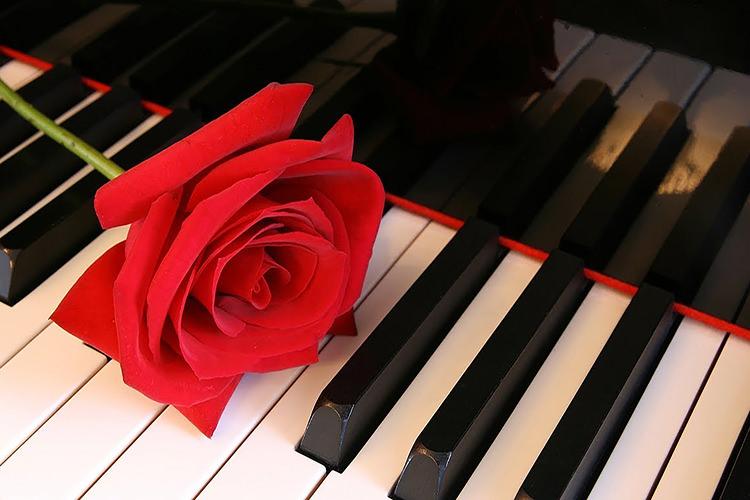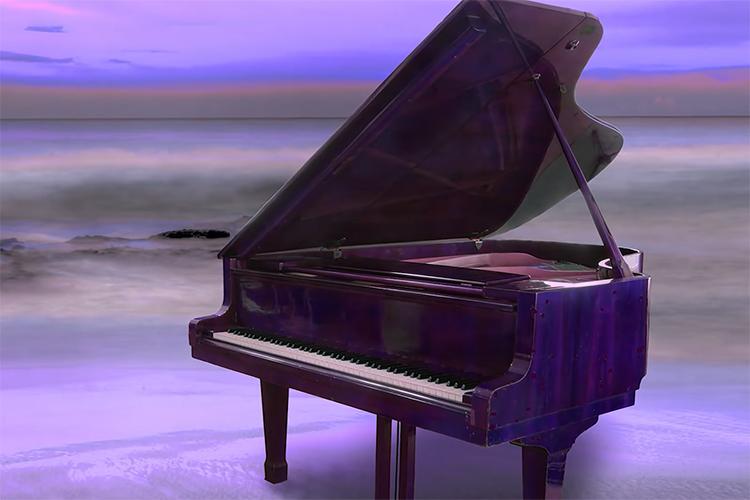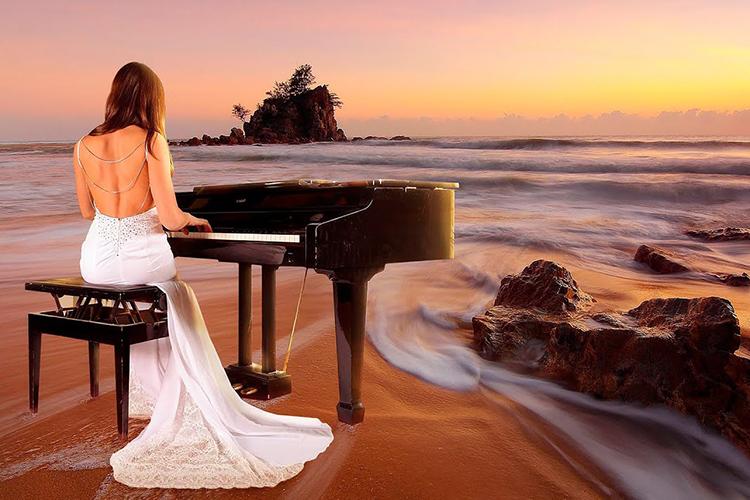Solo Piano - Flying to the Moon
Considered as the number one choice for music therapy, relaxation, and stress-relief, solo piano is more dynamic than expected, & its benefits are numerous.
Solo Piano - Flying to the Moon
Some call it boring, some consider it lethargic but solo piano music is powerful enough to touch our soul, soothe our feelings, and help us relax. If we wanted to squeeze solo piano music into a particular genre group, it'd be a tad difficult. Yes, it's classical but has also been found on the new age genre charts. It's not recommended while driving (because it can indeed be sleepy music) but also became the star in many films – from the theme from Schindler's List and Cinema Paradiso to Amelie's Waltz and Once Upon a Time in the West, sweeping us off our feet.
In a way, solo piano is the white canvas of music. It stands on its own but more music can be built on it. It prevails, when accompanied by other instruments, and can have vocals too. But if we wanted to be strict with our definition, we'd say that solo piano is piano solo. It's instrumental. And that's exactly why it's the ideal music for relaxation, stress-relief, and meditation.
Now, the intriguing part is that if we take a closer look, we'll see something more. Because the interesting thing with solo piano is that it doesn't solely soothe the senses; it also stirs the senses.

The great effects of solo piano music
Solo piano is good for the soul, the body, the brain. The sound of instrumental music positively affects the left hemisphere of the brain – the very one all anxieties set in, as it balances ambient noises. At a second level, it transports the soul to a place different from that which causes anxieties and stress, shifting our attention elsewhere – to nice memories and beautiful lands. Consequently, the soul calms down. Stress is reduced. With the stress gone, the heart rate is good and cardiac complications are minimized. There's clarity. There's a better understanding of things – an effect also known as the Mozart Effect.
Solo piano frees and feeds the brain, heals the body, soothes the soul.
Now, when all that happens, all great senses are released. What do we gain? Greater self-awareness, confidence, self-discipline, control, wisdom. It makes sense to say that by listening to solo piano repeatedly, all these senses set in and allow us to cope with all thrown at us much easier.
Why does this happen? Does solo piano music make us stronger? To answer these questions and go beyond the point where we see solo piano just as relaxing music, let's consider its role in our lives.

Solo piano music is part of life – we just don't realize it
Due to its soothing tune, solo piano music is used in many aspects of our everyday life – we just don't realize it. You may not know it, but you listen to solo piano most of the times you visit a doctor or have dinner at an expensive restaurant. Oftentimes, we intentionally put on solo piano music to relax and let go. On many occasions, solo piano is chosen to skyrocket creativity.
The interesting part? In spite of the different situations, there's always a purpose of playing solo piano music for a certain audience, whether this is a patient, student, artist, customer, or even our own self.
Take a piano bar and restaurant, for example. Solo piano music serves to calm the senses of the customers so that they will be able to relax while enjoying their dinner and drinks, and converse. This comes in contrast to fast food places, where the music is loud so that the customers will eat and go for more customers to take their place. In the piano restaurant, they want to create the right ambiance for the customer to stay longer – perhaps, consume more, and return to find this same calm environment.
Want another example? A doctor puts solo piano music in the waiting room to help the patients relax and thus prepare them to handle a trial. There's intention – good intention, but intention.
Music therapy – solo piano becomes the tool
The music of solo pianists, like Dan Kennedy, Fiona Joy Hawkins, and Greg Maroney – just to name a few of the plethora of artists listeners can enjoy on Radio Art, is part of our life for a reason, even when we don't realize it. But in many circumstances, it is us who choose to listen to solo piano. That's the sounds selected for professional music therapy. That's the music we often choose for music therapy at home too. Just to let go. We lie down, stretch our body, and try to relax. And this is the moment when we see the first intense contradiction.
What's that?
While solo piano becomes a stress-relief tool, there's often introspection. And when there's introspection, there's also some inner battle.

The contradictory emotions of solo piano
There's no denying that we often listen to solo piano just to relax, forget about a bad day, put all daily events behind. After all, if we wanted to give a free definition of solo piano, we'd say that it's the music that allows us to pause the madness of everyday life long enough to catch our breath and regroup.
But how about when our intention is to relax enough to solve a problem? How about when we need to find ourselves, deal with death, cope with a breakup? On all such occasions, there's a process. And solo piano becomes the transportation means of our emotions, allowing us to let go of all burdens, free our spirit and then give our battle. And that's exactly where the interesting part – the contradiction exists.
A battle is born thanks to relaxation. It makes a circle and leads us back to a state of calmness – hence, allowing us to deal with a situation.
This inner circle of stirred emotions is beautifully portrayed in the work of artists. Writers, painters, and sculptors need to find tranquility to create. But creativity is the child of intense emotions – sadness, frustration, nostalgia. Solo piano becomes their vehicle towards calmness so that they will be relaxed enough and free of other everyday thoughts in order to focus on their work. To reach maximum creativity, they let music take control. Once again, there's a process. The music vehicle makes several stops to let all anxieties hop off the soul but also allow new passengers to hop on. These new passengers are different emotions powerful enough to intrigue creativity – something absolutely necessary to any form of art and only achieved by the process of relaxation.

It's hardly surprising that solo piano is a great tool in the hands of music therapists, psychotherapists, and meditation gurus. It's no wonder that it helps overactive people unwind. It helps those who cannot sleep. It takes all anxieties away. It makes even physical pain go away. It may not belong to a specific music genre – in the traditional sense, but it is a genre in its own – relaxing and dynamic at the same time. And what's more powerful than inner tranquility – the very exact effect of solo piano?
Our website respects the intellectual property rights of creators, as well as the music rights of authors and composers.
The musical works are provided solely for the private use of each visitor/user
and any further exploitation of them in any way is prohibited without prior permission from AUTODIA and EDEM Rights.
Radio Art is fully approved by the Greek Collective Rights Organizations | AUTODIA | EDEM Rights
Copyright © RABS - Radio Art Broadcasting services Ltd. All rights reserved.
The Art of Relaxing & Meditation Music
Privacy Policy & TOS








